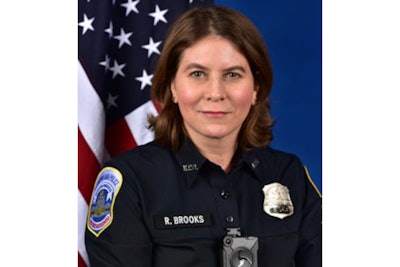 Georgetown law professor Rosa Brooks joined the DC Metropolitan Police Department as a reserve. (Photo: DC Metro PD)
Georgetown law professor Rosa Brooks joined the DC Metropolitan Police Department as a reserve. (Photo: DC Metro PD)
Georgetown University law professor and human rights activist Rosa Brooks wanted to better understand police and America's criminal justice system, so she decided to join the police force as a reserve.
As a reserve officer with the D.C. Metro Police Department, Brooks passed the police academy and was sent on patrol like other police. From 2016 until 2020, she carried a badge and a gun and worked a minimum of 24 hours a month as a reserve.
"If you want to change something, you have to understand it," she says. "It's very hard to understand something from the outside."
During her time on the force, Brooks responded to calls for a variety of serious issues, including domestic violence, robbery and shots fired. She also saw firsthand how trivial offenses sometimes resulted in arrest. The experience left her with a long list of ideas about how police departments could reform. But Brooks is quick to note that it's not just the police who need to change.
"The experience ... left me with a really clear sense that the deepest problems in policing can't be changed by police — they have to be changed by the rest of us," she says.
Read or Listen to full interview at: NPR.org
















